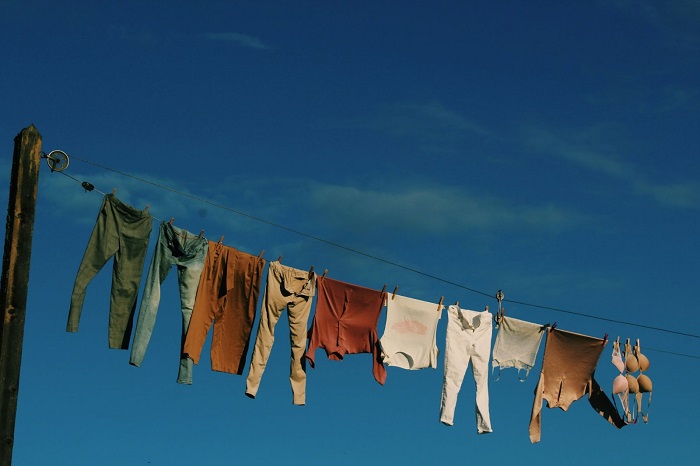If you’ve ever bought the perfect pair of jeans—only to watch them lose their rich color after just a few washes—you’re not alone. Fading jeans are a common frustration, but thankfully, it’s not inevitable. Understanding why jeans fade so quickly and learning a few simple care tips can help you keep your denim looking fresh and vibrant much longer. Let’s dive into the reasons behind the fast fading and the smart ways you can slow it down.
Why Do Jeans Fade So Quickly
Several factors contribute to the premature fading of denim. Knowing the causes can help you make better decisions when buying and caring for your jeans.
Dye Quality and Fabric Type
Most jeans, especially dark-wash and raw denim, are dyed with indigo, a dye that sits on the surface of the fabric rather than fully penetrating the fibers. This makes the color more vulnerable to washing, friction, and sunlight.
Frequent Washing
Water is one of denim’s biggest enemies. Every time you wash your jeans, a little bit of the dye washes away too. The more often you launder them, the quicker they fade.
High-Temperature Washing
Hot water opens up the fibers in the fabric, causing the dye to escape more easily. Even if you’re using the right detergent, washing in warm or hot water accelerates fading.
Sunlight Exposure
UV rays break down the chemical bonds in dyes. If you hang your jeans to dry in direct sunlight or wear them frequently on sunny days, fading will occur faster.
Friction and Wear
Regular movement—walking, sitting, bending—creates friction on the fabric. Areas like knees, thighs, and pockets are particularly prone to fading because they experience the most wear.
How to Prevent Your Jeans from Fading
You can’t completely stop your jeans from fading (and for many people, a little wear adds character). But with the right care, you can slow down the process significantly. Here are the top tips to keep your jeans looking their best:
Wash Less Often
- One of the easiest ways to prevent fading is simply to wash your jeans less frequently.
- Spot clean stains with a damp cloth instead of throwing the whole pair in the wash.
- If your jeans smell, hang them outside to air out or try freezing them overnight to kill odor-causing bacteria.
Turn Your Jeans Inside Out
- Before washing, always turn your jeans inside out.
- This helps protect the outer fibers from the full impact of water, detergent, and agitation.
- It also reduces friction during the wash cycle, helping preserve the surface color.
Use Cold Water
- Always wash your jeans in cold water.
- Cold water is much gentler on fabrics and helps keep dye molecules attached to the fibers.
- It also saves energy, which is a win for the environment!
Choose Gentle Detergents
- Harsh detergents can strip the dye right out of your jeans.
- Use a detergent specially formulated for dark colors.
- Avoid bleach and strong stain removers when washing denim.
Skip the Dryer
- Heat from the dryer can speed up fading and weaken the fabric.
- Air dry your jeans by laying them flat or hanging them in a shady spot.
- If you must use a dryer, choose the lowest heat setting and remove the jeans while they’re still slightly damp.
Avoid Direct Sunlight When Drying
- Sun exposure can be as damaging as frequent washing.
- Dry your jeans indoors or in a shaded, well-ventilated area.
- If you must hang them outside, keep them out of direct sunlight.
Invest in High-Quality Denim
- Not all jeans are created equal. Higher-quality denim often holds dye better and lasts longer.
- Look for jeans made with ring-dyed or rope-dyed fabric, which tend to have deeper, longer-lasting color.
- Raw or selvedge denim is another excellent option if you want jeans that age gracefully instead of just fading unevenly.
Caring for Denim in London
For denim enthusiasts, laundry in London can be a game-changer in preserving the rich color of your jeans. Many local laundromats and eco-friendly dry cleaners offer specialized services for delicate fabrics like denim, using cold-water washes and gentle detergents to minimize fading. With London’s often damp and overcast climate, air-drying indoors or in shaded areas is ideal to protect your jeans from UV damage, ensuring they maintain their vibrant hue for longer.
Extra Tips to Extend the Life of Your Jeans
If you’re serious about keeping your jeans looking their best, a few extra steps can make a big difference. Here are some additional tips to help extend the life of your favorite denim:
Hand Wash When Possible
For ultimate care, hand washing your jeans in cold water with a mild detergent can drastically reduce fading.
Vinegar Soak
Soaking new jeans in a mixture of cold water and white vinegar (one cup of vinegar per gallon of water) before their first wash can help set the dye.
Rotate Your Jeans
If you have multiple pairs, alternate them. This will reduce the amount of wear and tear on any single pair.
Patch High-Friction Areas Early
If you notice thin spots forming, consider patching them early. Reinforcing these areas can prevent larger holes and keep your jeans looking better for longer.
Embrace the Journey, but Protect the Color
Jeans are meant to be lived in, and some amount of fading is part of their charm. However, if you love the look of crisp, dark denim, a few small changes in how you care for your jeans can make a big difference. By washing less often, using cold water, and air drying away from the sun, you can enjoy vibrant, stylish jeans for years to come.






